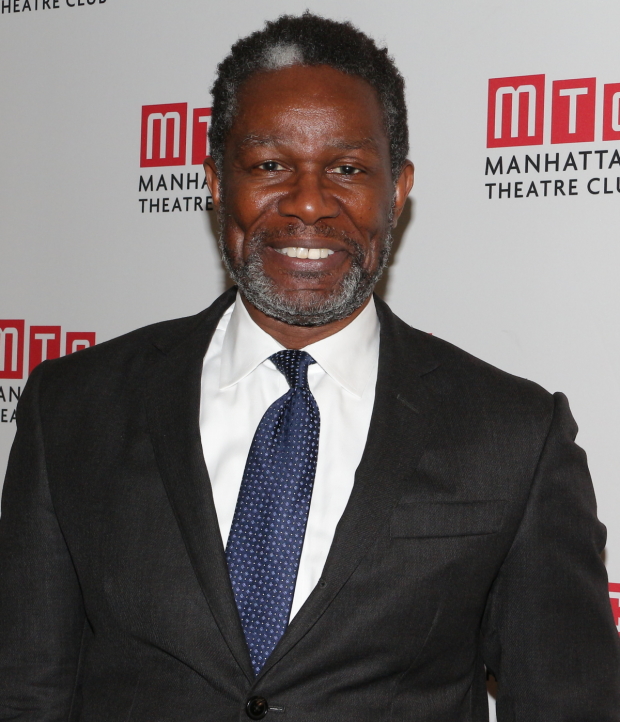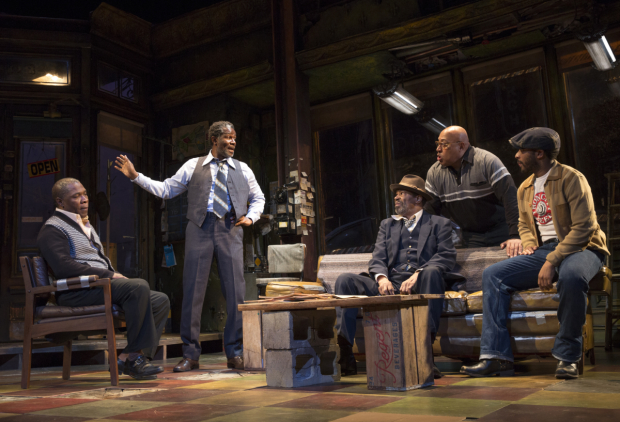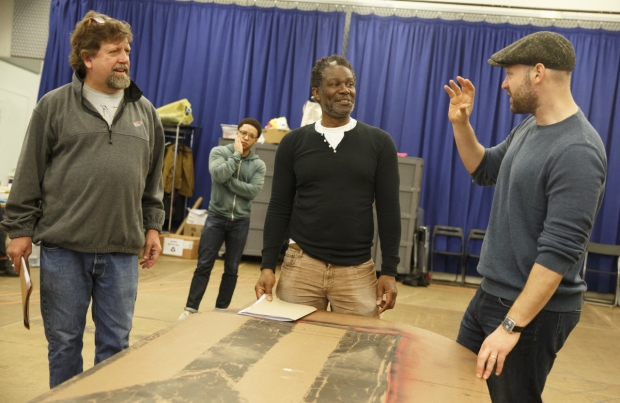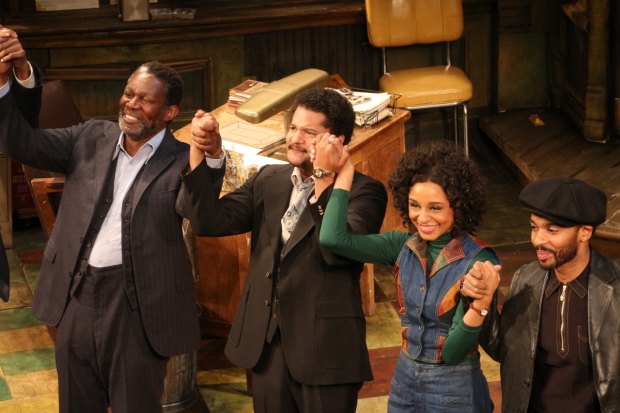John Douglas Thompson: From Corporate Computer Salesman to Tony Nominee
In 1986, Thompson got stood up on a date to see ”Joe Turner’s Come and Gone”. That night changed his life anyway.

(© David Gordon)
John Douglas Thompson is widely regarded as the greatest classical actor of his generation. Over the course of his career, the 53-year-old performer has played iconic roles by Shakespeare (Othello, Macbeth, Antony), O'Neill (Brutus Jones, Joe Mott), and Ibsen (Torvald, Judge Brack), among many others. This year, Thompson is a first-time Tony nominee for his performance as Becker in August Wilson's Jitney.
"If it wasn't for August Wilson," says the esteemed actor, "we wouldn't be having this conversation." That statement is a double-edged sword. His Tony nomination for Best Performance by an Actor in a Featured Role in a Play is, obviously, one of the reasons for this conversation (he's also currently in rehearsals for the Public Theater's free Shakespeare in the Park production of Julius Caesar). But without having been impacted by the works of the late playwright Wilson, particularly the world premiere production of Joe Turner's Come and Gone that he saw at Yale Repertory Theatre in 1986, "I'd be selling you a computer."
Thompson, born in Bath, England, and raised in Montreal, had only seen one live show, The Mystery of Edwin Drood, while he was in college. But, at age 29, watching Wilson's play Joe Turner, changed something in him. "I had never thought of being an actor," he says. "I was content with my career at that point, being a corporate salesperson, and maybe moving up the ladder as a manager or regional director. That was the career path put in front of you. Acting, to me, was going to the movies and seeing people on the big screen. I never said, 'I would like to do that' until I saw that play."
Initially, Thompson was supposed to see that production of Joe Turner on a date, but got stood up. He went to the show solo. And the rest is history. "The immediacy and intimate nature of it had a strong impact on me," he says. "But it really was the words and the characters. I had never seen the stories of people who looked like me or had lives like my family or me, told. It made my history feel important. There was something all encompassing about that experience that moved me to my core and made me realize I wanted to participate in this profession. I wanted to do what I was having done to me, to others."

(© Joan Marcus)
Graduating from the Trinity Rep Conservatory in 1994, Thompson dove in head first, and eventually found his niche in classical theater. "You get a sense of the size and scope of the humanity, truth, complexity, and subtlety in the human condition," he says of the genre. "I often find that there's a larger spectrum of emotions and feelings than there are sometimes in contemporary plays."
Wilson's plays are more contemporary than classical, but they share the same characteristics. "There is something about the universality and the humanity," he says of Wilson's Century Cycle. To be on Broadway with Jitney, Wilson's last play to reach the main stem, and to have received a Tony nomination to boot, "is just a dream come true, knowing how significant the works of August Wilson are to me." He also enjoyed being part of an ensemble, as opposed to being a leading man.
Thompson thinks back to having played Joe Mott in Eugene O'Neill's The Iceman Cometh, first at the Goodman Theatre and then at Brooklyn Academy of Music. "Nathan Lane and Brian Dennehy had the lion's share of lines, but it was an ensemble piece. I remember I was in awe of being in that group. Because you're playing a drunkard, someone who's half asleep unless there's a drink in front of them, you get to listen to the play, as character and actor, but also as an audience member. I didn't think I'd have anything to top that experience, but Jitney certainly did."

(© Joan Marcus)
At present, Thompson is taking on a central role in another large-scale ensemble piece, Oskar Eustis' upcoming mounting of Julius Caesar at the Delacorte Theater. It's Thompson's second shot at the play, having played Flavius in a Broadway revival starring Denzel Washington. This time out, he’s taking on the role of Cassius.
Mum's the word on what the production is like — they were only in tech at the time of this interview — but he's excited to see the show flourish on the large outdoor stage in Central Park. "To see the things that you worked on in the rehearsal room grow in the space, you start to get the realization that it's going to be really interesting," he says. He feels similarly about the production's diversity. Not only is it a multiracial company, but it also features women taking on the roles of central male characters. "I think it's gonna be really exciting because of that," he says. "And because of how prescient Julius Caesar is to our own times. There are certain parallels the audience will enjoy experiencing."
After Caesar, Thompson will scale a different Shakespearean mountain, taking on the role of Hamlet at the American Conservatory Theatre in San Diego. "It's a role I've always wanted to play, and I had never seen anyone who looked like me playing the role of Hamlet," he says. "That's where the personal becomes the political. I said I should do it so perhaps other people can look at the role and say, 'I have seen a Hamlet who looks like me.'"
That harks back to his experience so many years ago, when his life was changed by Joe Turner's Come and Gone. "I saw Joe Turner and it made me feel like I can do this. That was part of my indoctrination. It's part of my personal mythology. If I can do that for others, I'd love to."

(© David Gordon)








